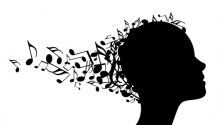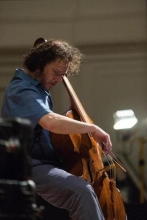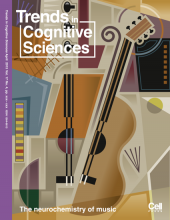A team of scientists from McGill University, the University of Cambridge, and Stanford Graduate School of Business developed a new method of coding and categorizing music. They found that people’s preference for these musical categories is driven by personality. The researchers say the findings have important implications for industry and health professionals.


By Cynthia Lee
Everyone marches to the beat of their own drum: From walking to talking to producing music, different people’s movements occur at different speeds.
Masashi Usui has over 18 years of experience playing the saxophone. Yet when he applied to the Master of Music program at McGill’s Schulich School of Music, he was told that he needed to improve his English in order to be admitted.
Read more on The Next Page, the School of Continuing Studies' newsletter.

Study fuels nature versus nurture debate
How do you get to Carnegie Hall? New research on the brain’s capacity to learn suggests there’s more to it than the adage that “practise makes perfect.” A music-training study by scientists at the Montreal Neurological Institute and Hospital -The Neuro, at McGill University and colleagues in Germany found evidence to distinguish the parts of the brain that account for individual talent from the parts that are activated through training.

Sometimes an artist’s most meaningful projects arise by chance, in everyday interactions, rather than through any grand plan. So, it seems, was the case with the intrepid cellist Matt Haimovitz, whose latest enthusiasm came about in the halls of McGill University, where he has been on the faculty for more than a decade.
Article from the The Boston Globe.



With classical music's popularity thriving in Asia (as millions of youngsters in China in particular are studying piano and violin from early age), and with the financial difficulties facing classical music in the West, opera houses in particular (as the New York City Opera bankruptcy, the present negotiations at the Metropolitan Opera, the last minute rescue of this year's season at the Rome opera house, and the constant strikes at classical music venues in France suggest), the question is: can classical music be financed without significant government subsidies?

Research from McGill University reveals that the brain’s motor network helps people remember and recognize music that they have performed in the past better than music they have only heard. A recent study by Prof. Caroline Palmer of the Department of Psychology sheds new light on how humans perceive and produce sounds, and may pave the way for investigations into whether motor learning could improve or protect memory or cognitive impairment in aging populations. The research is published in the journal Cerebral Cortex.

Dr. Robert J.

New study shows what happens in the brain to make music rewarding
A new study reveals what happens in our brain when we decide to purchase a piece of music when we hear it for the first time. The study, conducted at the Montreal Neurological Institute and Hospital – The Neuro, McGill University and published in the journal Science on April 12, pinpoints the specific brain activity that makes new music rewarding and predicts the decision to purchase music.

Registration is now open for the CRBLM Inaugural Symposium on Music and Language, to be held in Montréal, Canada on Friday, May 3rd and Saturday May 4th 2013. A brief conference program is included below. Full details about the conference and registration information are available at www.crblm.ca/symposium/registration


